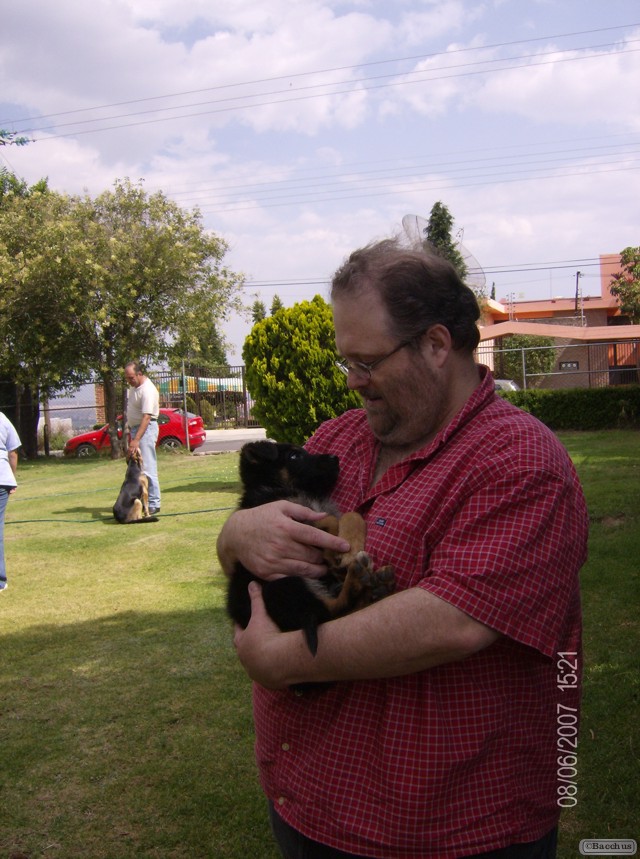In Descartes’s Writings
Meditations on First Philosophy
In 1641, Descartes published (in Latin) Meditations on first philosophy in which he referred to the proposition, though not explicitly as “cogito ergo sum” in Meditation II:
- Latin: “… hoc pronuntiatum: ego sum, ego existo, quoties a me profertur, vel mente concipitur, necessario esse verum.”
- English: “.. this proposition: I am, I exist, whenever it is uttered from me, or conceived by the mind, necessarily is true.”
Principles of Philosophy
In 1644, Descartes published (in Latin) his Principles of Philosophy where the phrase “ego cogito, ergo sum” appears in Part 1, article 7:
- Latin: “Sic autem rejicientes illa omnia, de quibus aliquo modo possumus dubitare, ac etiam, falsa esse fingentes, facilè quidem, supponimus nullum esse Deum, nullum coelum, nulla corpora; nosque etiam ipsos, non habere manus, nec pedes, nec denique ullum corpus, non autem ideò nos qui talia cogitamus nihil esse: repugnat enim ut putemus id quod cogitat eo ipso tempore quo cogitat non existere. Ac proinde haec cognitio, ego cogito, ergo sum, est omnium prima & certissima, quae cuilibet ordine philosophanti occurrat.”
- English: “While we thus reject all of which we can entertain the smallest doubt, and even imagine that it is false, we easily indeed suppose that there is neither God, nor sky, nor bodies, and that we ourselves even have neither hands nor feet, nor, finally, a body; but we cannot in the same way suppose that we are not while we doubt of the truth of these things; for there is a repugnance in conceiving that what thinks does not exist at the very time when it thinks. Accordingly, the knowledge, I think, therefore I am, is the first and most certain that occurs to one who philosophizes orderly.”
Descartes’s margin note for the above paragraph is:
- Latin: “Non posse à nobis dubitari, quin existamus dum dubitamus: at que hoc esse primum quod ordine philosophando cognoscimus.”
- English: “That we cannot doubt of our existence while we doubt, and that this is the first knowledge we acquire when we philosophize in order.”
Other Forms
The proposition is sometimes given as dubito, ergo cogito, ergo sum. This fuller form was penned by the eloquent French literary critic, Antoine Léonard Thomas, in an award-winning 1765 essay in praise of Descartes, where it appeared as “Puisque je doute, je pense; puisque je pense, j’existe.” In English, this is “Since I doubt, I think; since I think I exist”; with rearrangement and compaction, “I doubt, therefore I think, therefore I am”, or in Latin, “dubito, ergo cogito, ergo sum”.
A further expansion, dubito, ergo cogito, ergo sum – res cogitans (“… – a thinking thing”) extends the cogito with Descartes’s statement in the subsequent Meditation, “Ego sum res cogitans, id est dubitans, affirmans, negans, pauca intelligens, multa ignorans, volens, nolens, imaginans etiam et sentiens …”, or, in English, “I am a thinking (conscious) thing, that is, a being who doubts, affirms, denies, knows a few objects, and is ignorant of many …”. This has been referred to as “the expanded cogito”.
Luc Paquin
The Origins Of LPAA
Functional and Pragmatic Approaches
LPAA draws on ideas underlying functional and pragmatic approaches to aphasia nad shares some common values with those who take a broad approach to functional communication treatment by focusing on life participation goals and social relationships. In our view, however, the term “functional” does not do justice to the breadth of this work. In addition, the term is often used narrowly to mean “functional independence in getting a message across”. Although LPAA recognizes the value of this type of impairment-level work, it should form part of a bigger picture where ultimate goal for intervention is re-engagement into everyday society.
Human Rights Issues and Consumers’ Goals
LPAA is a means of addressing unmet needs and rights of individuals with aphasia and those in their environment. Indeed, the Americans with Disabilities Act (ADA), signed into law on July 26, 1990, requires that physical and communication access be provided for individuals with aphasia and other disabilities and allows them legal recourse if they are blocked from accessing employment, programs, and services in the public and private sectors.
In 1992, ASHA provided guidelines for a “communication bill of rights” (National Joint Committee for the Communicative Needs of Persons with Severe Disabilities). Its preface states that “all persons, regardless of the extent or severity of their disabilities, have a basic right to affect, through communication, the conditions of their own existence”. Communication is defined as “a basic need and basic right of all human beings”. ASHA thus views communication as an integral part of life participation.
Emphasis on Competence and Inclusion
LPAA philosophy embraces a view of treatment that emphasizes competence and inclusion in daily life, focusing as much on the consequences of chronic disorders as on the language difficulty caused by the aphasia. Along with other movements in education and health care, LPAA shifts from a focus on deficits and remediation to one of inclusion and life participation. Such international changes in focus point to the need to address the personal experience of disability and promote optimal life inclusion and reintegration into society.
Changes in Reimbursement and Service Delivery
Health care and reimbursement in America have undergone an unprecedented overhaul. Financial exigencies have led to an emphasis on medically essential treatments and others seen as likely to save on future health care costs. Many of the incentives in this model result in the provision of efficient short-term minimal care, rather than the longer term, fuller care supported in the past.
LPAA represents a fundamental shift in how we view service delivery for people confronting aphasia. Since LPAA focuses on broader life-related processes and outcomes form the onset of treatment, service delivery and its reimbursement will require novel means that stand outside most current practices. We are confident that cost-sensitive and therapeutically effective models are possible. Our purpose in this introductory article is to prompt a discussion with providers and consumers as to whether life participation principles and values should play a more central role in the delivery and reimbursement of future service delivery for all those affected by aphasia.
Norma
In Descartes’s Writings
Descartes first wrote the phrase in French in his 1637 Discourse on the Method. He referred to it in Latin without explicitly stating the familiar form of the phrase in his 1641 Meditations on First Philosophy. The earliest written record of the phrase in Latin is in his 1644 Principles of Philosophy, where, in a margin note, he provides a clear explanation of his intent. Fuller forms of the phrase are attributable to other authors.
Discourse on the Method
The phrase first appeared (in French) in Descartes’s 1637 Discourse on the Method in the first paragraph of its fourth part:
- French: “… Ainsi, à cause que nos sens nous trompent quelquefois, je voulus supposer qu’il n’y avoit aucune chose qui fût telle qu’ils nous la font imaginer; et parce qu’il y a des hommes qui se méprennent en raisonnant, même touchant les plus simples matières de géométrie, et y font des paralogismes, jugeant que j’étois sujet à faillir autant qu’aucun autre, je rejetai comme fausses toutes les raisons que j’avois prises auparavant pour démonstrations; et enfin, considérant que toutes les mêmes pensées que nous avons étant éveillés nous peuvent aussi venir quand nous dormons, sans qu’il y en ait aucune pour lors qui soit vraie, je me résolus de feindre que toutes les choses qui m’étoient jamais entrées en l’esprit n’étoient non plus vraies que les illusions de mes songes. Mais aussitôt après je pris garde que, pendant que je voulois ainsi penser que tout étoit faux, il falloit nécessairement que moi qui le pensois fusse quelque chose; et remarquant que cette vérité, je pense, donc je suis, étoit si ferme et si assurée, que toutes les plus extravagantes suppositions des sceptiques n’étoient pas capables de l’ébranler, je jugeai que je pouvois la recevoir sans scrupule pour le premier principe de la philosophie que je cherchois.”
- English: “… Accordingly, seeing that our senses sometimes deceive us, I was willing to suppose that there existed nothing really such as they presented to us; and because some men err in reasoning, and fall into paralogisms, even on the simplest matters of geometry, I, convinced that I was as open to error as any other, rejected as false all the reasonings I had hitherto taken for demonstrations; and finally, when I considered that the very same thoughts (presentations) which we experience when awake may also be experienced when we are asleep, while there is at that time not one of them true, I supposed that all the objects (presentations) that had ever entered into my mind when awake, had in them no more truth than the illusions of my dreams. But immediately upon this I observed that, whilst I thus wished to think that all was false, it was absolutely necessary that I, who thus thought, should be somewhat; and as I observed that this truth, I think, therefore I am,[c] was so certain and of such evidence that no ground of doubt, however extravagant, could be alleged by the sceptics capable of shaking it, I concluded that I might, without scruple, accept it as the first principle of the philosophy of which I was in search.”
Luc Paquin
Good and Evil
Accusations of Witchcraft
Éva Pócs states that reasons for accusations of witchcraft fall into four general categories:
- A person was caught in the act of positive or negative sorcery
- A well-meaning sorcerer or healer lost their clients’ or the authorities’ trust
- A person did nothing more than gain the enmity of their neighbours
- A person was reputed to be a witch and surrounded with an aura of witch-beliefs or Occultism
She identifies three varieties of witch in popular belief:
- The “neighbourhood witch” or “social witch”: a witch who curses a neighbour following some conflict.
- The “magical” or “sorcerer” witch: either a professional healer, sorcerer, seer or midwife, or a person who has through magic increased her fortune to the perceived detriment of a neighbouring household; due to neighbourly or community rivalries and the ambiguity between positive and negative magic, such individuals can become labelled as witches.
- The “supernatural” or “night” witch: portrayed in court narratives as a demon appearing in visions and dreams.
“Neighbourhood witches” are the product of neighbourhood tensions, and are found only in self-sufficient serf village communities where the inhabitants largely rely on each other. Such accusations follow the breaking of some social norm, such as the failure to return a borrowed item, and any person part of the normal social exchange could potentially fall under suspicion. Claims of “sorcerer” witches and “supernatural” witches could arise out of social tensions, but not exclusively; the supernatural witch in particular often had nothing to do with communal conflict, but expressed tensions between the human and supernatural worlds; and in Eastern and Southeastern Europe such supernatural witches became an ideology explaining calamities that befell entire communities.
Violence Related to Accusations
Belief in witchcraft continues to be present today in some societies and accusations of witchcraft are the trigger of serious forms of violence, including murder. Such incidents are common in places such as Burkina Faso, Ghana, India, Kenya, Malawi, Nepal and Tanzania. Accusations of witchcraft are sometimes linked to personal disputes, jealousy, and conflicts between neighbors or family over land or inheritance. Witchcraft related violence is often discussed as a serious issue in the broader context of violence against women.
In Tanzania, about 500 older women are murdered each year following accusations against them of witchcraft. Apart from extrajudicial violence, there is also state-sanctioned violence in some jurisdictions. For instance, in Saudi Arabia practicing ‘witchcraft and sorcery’ is a crime punishable by death and the country has executed people for this crime in 2011, 2012 and 2014.
Children in some regions of the world, such as parts of Africa, are also vulnerable to violence related to witchcraft accusations. Such incidents have also occurred in immigrant communities in the UK, including the much publicized case of the murder of Victoria Climbié.
The Lost Bearded White Brother
Cogito ergo sum is a Latin philosophical proposition by René Descartes usually translated into English as “I think, therefore I am”. The phrase originally appeared in French as “je pense, donc je suis” in his Discourse on the Method, so as to reach a wider audience than Latin would have allowed. It appeared in Latin in his later Principles of Philosophy. As Descartes explained, “[W]e cannot doubt of our existence while we doubt… .” A fuller form, dubito, ergo cogito, ergo sum (“I doubt, therefore I think, therefore I am”), aptly captures Descartes’ intent.
This proposition became a fundamental element of Western philosophy, as it purported to form a secure foundation for knowledge in the face of radical doubt. While other knowledge could be a figment of imagination, deception, or mistake, Descartes asserted that the very act of doubting one’s own existence served – at minimum – as proof of the reality of one’s own mind; there must be a thinking entity – in this case the self – for there to be a thought.
Luc Paquin
The Essence Of LPAA
We encourage clinicians and researchers to focus on the real-life goals of people affected by aphasia. For example, in the initial stages following a CVA, a goal may be to establish effective communication with the surrounding nursing staff and physicians. At a later stage, a life goal may be to return to employment or participation in the local community.
Regardless of the stage of management, LPAA emphasizes the attainment of re-engagement in life by strengthening daily participation in activities of choice. Residual skill is thus seen as only one of many requisites. For example, full participation is dependent on motivation and a consistent and dependable support system. A highly supportive environment can lessen the consequences of aphasia on one’s life, whatever the language impairment. A nonsupportive environment, on the other hand, can substantially increase the chance of aphasia affecting daily routines. Someone with mild aphasia in a nonsupportive environment might experience greater daily encumbrances than another with severe aphasia who is highly supported.
In this broadening and refocusing of services, LPAA recommends that clinicians and researchers consider the dual function of communication – transmitting and receiving messages and establishing and maintaining social links. Furthermore, life activities do not need to be in the realm of communication in order to deserve or receive intervention. What is important is to judge whether aphasia ffects the execution of activities of choice and one’s involvement in them.
Norma
I Think, Therefore I Am
While methodic doubt has a nature, one need not hold that knowledge is impossible in order to apply the method of doubt. Indeed, Descartes’ attempt to apply the method of doubt to the existence of himself spawned the proof of his famous saying, “Cogito ergo sum” (I think, therefore I am). That is, Descartes tried to doubt his own existence, but found that even his doubting showed that he existed, since he could not doubt if he did not exist.
Criticisms
Cartesian skepticism advocates the doubting of all things which cannot be justified through logic. Some have claimed that the corresponding philosophical proposition fails the criterion of falsifiability that is associated with empirical theory.
Incontrovertible Evidence
Incontrovertible evidence is a colloquial term for evidence introduced to prove a fact that is supposed to be so conclusive that there can be no other truth as to the matter; evidence so strong it overpowers contrary evidence, directing a fact-finder to a specific and certain conclusion.
Luc Paquin
Good and Evil
Demonology
In Christianity and Islam, sorcery came to be associated with heresy and apostasy and to be viewed as evil. Among the Catholics, Protestants, and secular leadership of the European Late Medieval/Early Modern period, fears about witchcraft rose to fever pitch, and sometimes led to large-scale witch-hunts. The key century was the fifteenth, which saw a dramatic rise in awareness and terror of witchchraft, culminating in the publication of the Malleus Maleficarum but prepared by such fanatical popular preachers as Bernardino of Siena. Throughout this time, it was increasingly believed that Christianity was engaged in an apocalyptic battle against the Devil and his secret army of witches, who had entered into a diabolical pact. In total, tens or hundreds of thousands of people were executed, and others were imprisoned, tortured, banished, and had lands and possessions confiscated. The majority of those accused were women, though in some regions the majority were men. “Warlock” is sometimes mistakenly used for male witch. Accusations of witchcraft were often combined with other charges of heresy against such groups as the Cathars and Waldensians.
The Malleus Maleficarum, (Latin for “Hammer of The Witches) was a witch-hunting manual written in 1486 by two German monks, Heinrich Kramer and Jacob Sprenger. It was used by both Catholics and Protestants for several hundred years, outlining how to identify a witch, what makes a woman more likely than a man to be a witch, how to put a witch on trial, and how to punish a witch. The book defines a witch as evil and typically female. The book became the handbook for secular courts throughout Renaissance Europe, but was not used by the Inquisition, which even cautioned against relying on the work, and was later officially condemned by the Catholic Church in 1490.
In the modern Western world, witchcraft accusations have often accompanied the satanic ritual abuse moral panic. Such accusations are a counterpart to blood libel of various kinds, which may be found throughout history across the globe.
White Witches
Throughout the early modern period, the English term “witch” was not exclusively negative in meaning, and could also indicate cunning folk. “There were a number of interchangeable terms for these practitioners, ‘white’, ‘good’, or ‘unbinding’ witches, blessers, wizards, sorcerers, however ‘cunning-man’ and ‘wise-man’ were the most frequent.” The contemporary Reginald Scot noted, “At this day it is indifferent to say in the English tongue, ‘she is a witch’ or ‘she is a wise woman'”. Folk magicians throughout Europe were often viewed ambivalently by communities, and were considered as capable of harming as of healing, which could lead to their being accused as “witches” in the negative sense. Many English “witches” convicted of consorting with demons seem to have been cunning folk whose fairy familiars had been demonised; many French devins-guerisseurs (“diviner-healers”) were accused of witchcraft, and over one half the accused witches in Hungary seem to have been healers.
Some of the healers and diviners historically accused of witchcraft have considered themselves mediators between the mundane and spiritual worlds, roughly equivalent to shamans. Such people described their contacts with fairies, spirits often involving out-of-body experiences and travelling through the realms of an “other-world”. Beliefs of this nature are implied in the folklore of much of Europe, and were explicitly described by accused witches in central and southern Europe. Repeated themes include participation in processions of the dead or large feasts, often presided over by a horned male deity or a female divinity who teaches magic and gives prophecies; and participation in battles against evil spirits, “vampires”, or “witches” to win fertility and prosperity for the community.
The Lost Bearded White Brother
Descartes’ Method
René Descartes, the originator of Cartesian doubt, put all beliefs, ideas, thoughts, and matter in doubt. He showed that his grounds, or reasoning, for any knowledge could just as well be false. Sensory experience, the primary mode of knowledge, is often erroneous and therefore must be doubted. For instance, what one is seeing may very well be a hallucination. There is nothing that proves it cannot be. In short, if there is any way a belief can be disproved, then its grounds are insufficient. From this, Descartes proposed two arguments, the dream and the demon.
The Dream Argument
Descartes, knowing that the context of our dreams, while possibly unbelievable, are often lifelike, hypothesized that humans can only believe that they are awake. There are no sufficient grounds by which to distinguish a dream experience from a waking experience. For instance, subject a sits at the computer, typing this article. Just as much evidence exists to indicate that the act of composing this article is reality, as there is evidence to demonstrate the opposite. Descartes conceded that we live in a world that can create such ideas as dreams. However, by the end of The Meditations, he concludes that we can distinguish dream from reality at least in retrospect.
The Evil Demon
Descartes reasoned that our very own experience may very well be controlled by an evil demon of sorts. This genius is as clever and deceitful as he is powerful. He could have created a superficial world that we may think we live in.
In Meditation I, Descartes stated that if one were mad, even briefly, the insanity might have driven man into believing that what we thought was true could be merely our minds deceiving us. He also stated that there could be ‘some malicious, powerful, cunning demon’ that had deceived us, preventing us from judging correctly.
Descartes argued that all his senses were lying and since your senses can easily fool you, his idea of an infinitely powerful being must be true as that idea could have only been put there by an infinitely powerful being which would have no reason to be deceitful to him.
Luc Paquin










